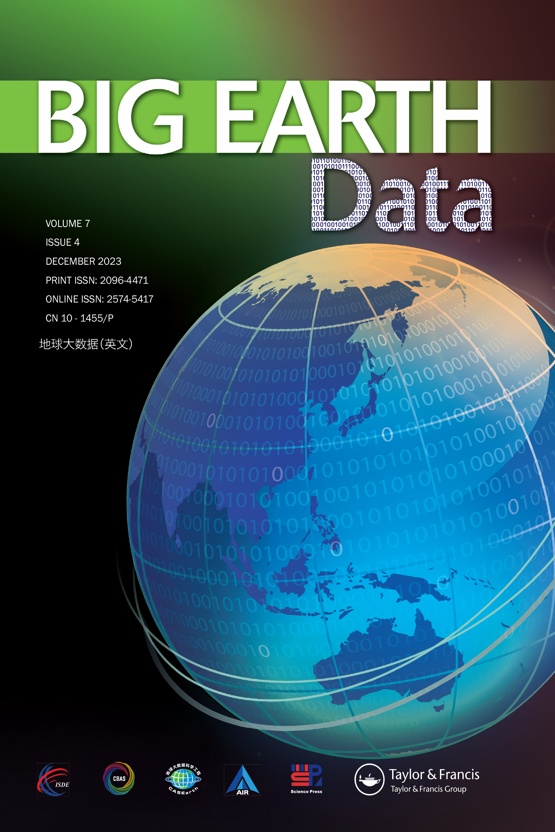Submit a Manuscript to the Journal
Big Earth Data
For a Special Issue on
Exploring the Uncertainty in Big Geodata: Progress and Challenges
Manuscript deadline


Special Issue Editor(s)
Yihong Yuan,
Texas State University, United States
yuan@txstate.edu
Yongmei Lu,
Texas State University, United States
yl10@txstate.edu
Yanjia Cao,
The University of Hong Kong, China
yanjiac@hku.hk
Hongchao Fan,
Norwegian University of Science and Technology, Norway
hongchao.fan@ntnu.no
Exploring the Uncertainty in Big Geodata: Progress and Challenges
In the age of instant access, big geodata stands at the forefront of tackling global challenges, from enhancing climate resilience to advancing urban sustainability. It is crucial to interpret this large volume of data accurately and precisely. However, similar to other types of data, uncertainty is also an inevitable issue within big geodata. This uncertainty stems from a variety of factors, including how we conceptualize and represent the space and objects of interest and how we collect, process, and analyze the data. It presents a challenge in using big geodata effectively for making informed decisions and accurate forecasts. Moreover, understanding the uncertainty for big geodata and geospatial analysis is becoming more pressing as we seek reproducibility and replicability of machine learning and artificial intelligence (AI) to ensure consistent and reliable results across studies.
A better understanding of uncertainty in big geodata will help unleash the full potential of datasets and analyses to advance both theoretical and applied studies. The special issue, "Exploring the Uncertainty in Big Geodata," focuses on the methods, tools, and case studies that can transform the uncertain nature of big geodata into a source of strength. This transformation helps decision-makers draw more precise and impactful conclusions, therefore improving the dependability and usefulness of big data and analyses across different sectors. Additionally, new applications that reveal limitations and challenges stemming from uncertainty and data quality of big geodata are also welcome in this special issue, whether it is environmental management, transportation, urban planning, disaster response, or another related field.
Potential topics
We invite contributions that advance the theoretical, methodological, and practical aspects of managing, analyzing, and interpreting uncertainty in big geodata. Submissions may cover, but are not limited to, the following topics:
- Novel methodologies for quantifying and communicating uncertainty in big geodata.
- Case studies, applications, and solutions demonstrating the impact of uncertainty on geospatial decision-making processes.
- Advances in machine learning and AI for predicting and managing uncertainty in big geodata.
- Investigations of uncertainty in machine learning and GeoAI, particularly focusing on issues of reproducibility and replicability.
- Metrics and methodologies to measure big geodata quality.
- Innovations in big geodata visualization to effectively convey uncertainty to users.
- The role of uncertainty in big geodata governance, ethics, and policy-making.
- Theoretical and empirical discussions on the connections and differences between data quality and data uncertainty.
Submission Instructions
Important Dates
- December 1, 2025 Paper submission online
- January 15, 2026 Decision to authors
- February 15, 2026 Revised paper submission
- May 15, 2026 Publication
Manuscript Submission Information
Please visit the Instructions for Authors page before submitting your manuscript. Once you have finished preparing your manuscript, please submit it through the Taylor & Francis Submission Portal, ensuring that you select the appropriate Special Issue. Publication charges (APCs) will be waived for invited manuscripts submitted to Big Earth Data. Authors who need a waiver code should contact the Editorial Office (guanll@aircas.ac.cn) before submitting.
